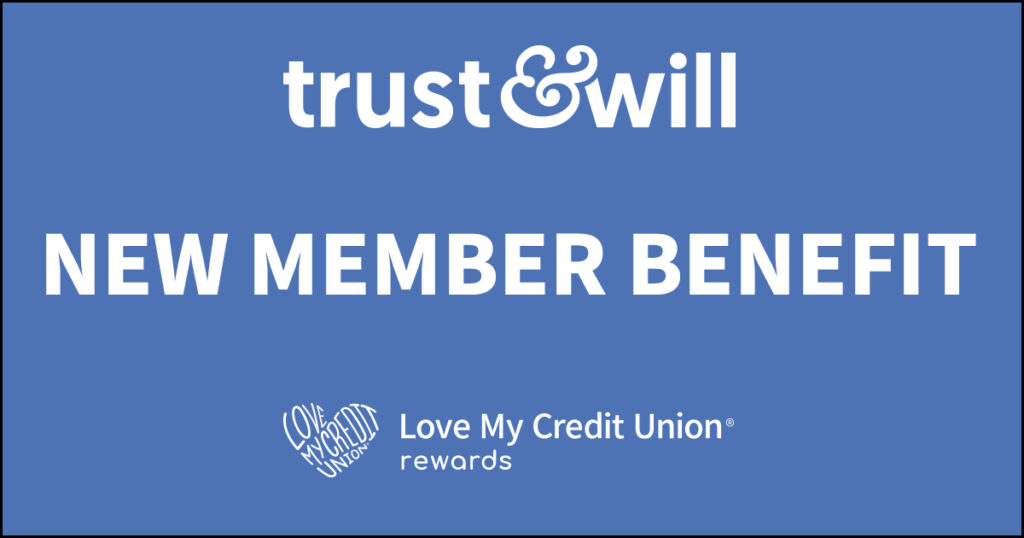
We CONNECT
Join us for our 14th Annual Member Appreciation Day!

Featuring a 5-Day Auto Loan Special!
On October 17, 2024, Acclaim Federal Credit Union will join with thousands of credit unions around the world in celebration of International Credit Union (ICU) Day®.
Come join us in-person at our credit union branch on from 11am to 2pm for food, fun, and free stuff! We will have Stamey’s BBQ onsite catering our event!
We will also be hosting an online Facebook giveaway raffle. To enter, you will need to visit our Facebook page between 12:00pm on October 10, 2024 and 12:00pm on October 17, 2024 and find our Facebook Giveaway post. Then, comment on the post’s question, “What financial apps or tools have been most helpful to you?” and you will need to opt in to our notices by texting ACCLAIM to 888-794-1001, if you have not done so already. See official rules here.
In addition, we will be offering an incredible 5-day auto loan special! During the week of October 14th-18th, 2024, get up to 1.25%APR off your qualifying rate!

Retirement Primer: Things to Know About Trust Funds

Discover the benefits of trust funds and how they can safeguard your assets for the future.
Establishing a trust can be a great alternative to a will. It’s especially true for people who want more control and flexibility with their estate planning.
Here are five things to know about trust funds.
- A trust fund is a private contract that is always accessible to the holder
The process of probate turns wills into public documents. That means they’re a matter of record that anyone can look into. A trust, on the other hand, is a private document that never sees a courtroom. No one, other than the trustee and the designees, can see a copy of the trust contract. This can help to prevent quibbling over who got what down the line.
Trust funds also offer accessibility. The assets placed in a trust can be accessed according to the terms set by the grantor.
- Your designated trustee is responsible for executing your wishes upon your passing
When you establish a trust, you appoint a trustee to manage and distribute the assets according to your wishes. This person or institution is legally obligated to follow the instructions as outlined in the trust agreement. Upon your passing, the trustee steps in to ensure assets are distributed to your beneficiaries as you intended.
This can provide peace of mind, knowing that your loved ones will be taken care of in the way you envisioned.
- Trust funds can lower taxes
Life insurance benefits are usually included in your estate. This payment can push an estate over the threshold for federal income tax.
Irrevocable trust funds, on the other hand, can help reduce or eliminate estate taxes owed after the trust fund holder dies.
Trust accounts can also spread the capital gains from an estate among several parties, lowering the total taxes paid on the proceeds of the sale of a house or other significant assets.
- Trust funds allow for greater control
A trust fund offers greater flexibility and control when compared to a will. While a will simply dictates who receives your assets after you pass away, a trust allows you to set specific terms and conditions for how and when those assets are distributed. For example, you can stipulate that a beneficiary receives their funds upon reaching a specific milestone, such as graduating from college. This allows you to continue to be a part of your family for years into the future.
5. Trust funds do not require an attorney or witness
While it’s always advisable to consult with a legal professional when setting up a trust fund, it’s not a legal requirement to have an attorney or witnesses present. Trusts can be established by simply creating a trust agreement, which outlines the terms and conditions of the trust, and transferring assets into the trust.
The Anatomy of a Mortgage Payment

A Simple Guide to Navigating Your Mortgage Payment
Trying to understand your mortgage payment can be like trying to decode a secret language. At the very least, you may be wondering what all the lingo means.
No worries; we can help! Let’s take a look at the different components of your mortgage payment, explain how it’s calculated and offer tips for managing payments effectively.
Principal
The principal of your mortgage is the amount of money you borrow from your lender when buying your home. A portion of each payment goes toward paying down this principal. In the early years of your mortgage, a smaller portion of your payment goes toward the principal while most goes toward interest. As time goes on, though, this balance shifts, and more of your payment goes toward principal.
Interest
Interest is the cost of borrowing money from your lender and is calculated on the outstanding principal balance. It’s typically expressed as an annual percentage rate (APR). The interest rate you get depends on several factors, including your credit score, your down payment amount and current market. There are two main types of interest rates: fixed and variable. A fixed-rate mortgage keeps the same interest rate for the life of the loan, while a variable-rate mortgage can change over time based on market conditions.
Property taxes
Property taxes are levied by local governments and are based on the assessed value of your property. These taxes fund essential services in your community, like schools, police and fire departments and road maintenance. The amount of property taxes you’ll pay varies widely by location.
Homeowners insurance
Homeowners insurance protects your property and belongings from damage or loss due to events like fires, storms and theft. Most lenders require borrowers to carry homeowners insurance, so your choice will not be whether to get insurance, but how much coverage to purchase.
Private mortgage insurance
If your down payment is less than 20% of the home’s purchase price, your lender will likely require you to carry private mortgage insurance (PMI), which protects the lender in case you default on your loan.
The cost of PMI varies, but typically ranges from 0.3% to 1.5% of the original loan amount per year. Once you have built up 20% equity in your home, you can usually request to cancel PMI.
Tips for managing mortgage payments
Budget for your payments: Create a budget that includes your mortgage payment and other homeownership costs.
Refinancing: If interest rates have dropped since you got your mortgage, consider refinancing. Refinancing can lower your interest rate and/or monthly payment. It’s also a way to switch from a variable to a fixed-rate mortgage.
Extra payments: Making extra payments toward your principal can help you pay off your mortgage faster and save on interest paid over the life of the loan.
Understanding the anatomy of a mortgage payment is essential for managing your finances. Use this guide to learn about the components of your mortgage and how to manage your payments effectively.
Acclaim FCU Scholarship Opportunity

Accepting Applications October 1 - February 1
We are delighted to inform you that our Ed Thomas Community Service Scholarship Fund will be open for applications from October 1st through February 1st.
This scholarship was established in tribute to Ed Thomas, a former Board Member who served in various capacities, including Chairman, during his tenure with us. Throughout his many years of exceptional volunteerism, he provided steadfast support and guidance, contributing significantly to the continuous growth and success of Acclaim.
In collaboration with the Carolinas Credit Union Foundation, Acclaim has streamlined the scholarship application process for our members, making it user-friendly and easy to manage. We have implemented a straightforward registration procedure that enables you to oversee your scholarship application through their dedicated portal.
Budget-friendly Meals Under $8
Savory Hoisin Chicken Thighs

This sweet and tangy dish will become an instant family favorite!
Ingredients:
- 1/3 C. hoisin sauce
- 1/3 C. soy sauce
- 2 T. maple syrup
- 2 T. Sriracha chili sauce
- 1 T. brown rice vinegar
- 2 tsp. sesame oil
- 2 garlic cloves, crushed
- 1/2 tsp. minced ginger root
- 4 bone-in chicken thighs
- 1/4 tsp. salt
- 1/4 tsp. pepper
- 1 medium sweet potato, cut into 3/4-inch cubes
- 2 T. olive oil, divided
- 4 C. fresh cauliflower florets
- 1 medium sweet red pepper, cut into 3/4-inch pieces
Directions:
- Preheat the oven to 400°F.
- Mix the first 8 ingredients together and set aside.
- Sprinkle both sides of chicken with salt and pepper. Place chicken and sweet potato in a single layer in a greased 15”x10”x1” baking pan. Drizzle with 1 tablespoon olive oil and a third of the hoisin mixture; toss to coat.
- Bake for 15 minutes; turn chicken and potatoes. Add cauliflower and pepper; drizzle with another third of the hoisin mixture and remaining olive oil. Bake for an additional 30 minutes longer. Drizzle with the remaining hoisin mixture.
Yield: 4 servings
Prep time: 5 min
Cook time: 45 min
Beware Auto Repair Scams

Steer Clear of Auto Repair Scams with These Tips
Unless you’re an auto mechanic or self-professed expert on cars, you likely don’t know all there is about the inner workings of your car. This can make you vulnerable to falling for an auto repair scam, which can be challenging to spot.
Here’s what you need to know about auto repair scams, and how to keep yourself from falling victim.
How auto repair scams play out
Auto repair scams can come in many forms, but they generally follow a similar pattern. Here are a few common scenarios:
- The mystery problem scam. You take your car in for a simple issue, like an oil change or tire rotation and the mechanic “discovers” a more serious, often vague problem requiring immediate attention.
- The bait and switch scam. Here, a repair shop advertises a low price for a common service. Once your car is in the shop, they’ll find additional “necessary” repairs that inflate the final bill. The shop may even perform the extra work without your consent, leaving you with no choice but to pay.
- The used parts scam. In this scam, a mechanic charges you for new parts but installs used or refurbished ones. The parts may be of inferior quality, leading to more frequent breakdowns and the need for additional repairs.
- The endless repairs scam. After completing a repair, the mechanic tells you that another unrelated issue needs fixing. This cycle continues, with one repair leading to another, making it seem like your car is constantly in need of service.
Red flags to watch out for
Look out for these warning signs that you may have been targeted by an auto repair scam:
- Unsolicited repair suggestions.
- Vague or confusing explanations for repairs that are allegedly necessary.
- High-pressure tactics.
- Refusal to provide written estimates.
- Unexplained charges on the invoice.
Protect yourself
Here’s how to protect yourself from falling victim to an auto repair scam.
First, before hiring a mechanic or heading to an auto repair shop, do your research. Look up reviews online, ask for recommendations from friends or family and check the shop’s credentials. It’s also recommended that you familiarize yourself with your car’s basic maintenance needs and how it functions. The more you know, the less likely you are to be taken advantage of.
Next, get a second, or even third opinion on any major repairs before agreeing to have work done. Comparing estimates can help you determine if a shop is overcharging or recommending unnecessary work.
Keep detailed records of all repairs and services performed on your vehicle so you can track its history and identify any inconsistencies if a mechanic claims something needs repeated attention.
Finally, if you find a mechanic you trust, stick with them. Building a long-term relationship can help ensure that your car receives honest, high-quality service over time.
Auto repair scams can be a nightmare for car owners, but by staying informed and vigilant, you can protect yourself from falling victim. Stay safe!